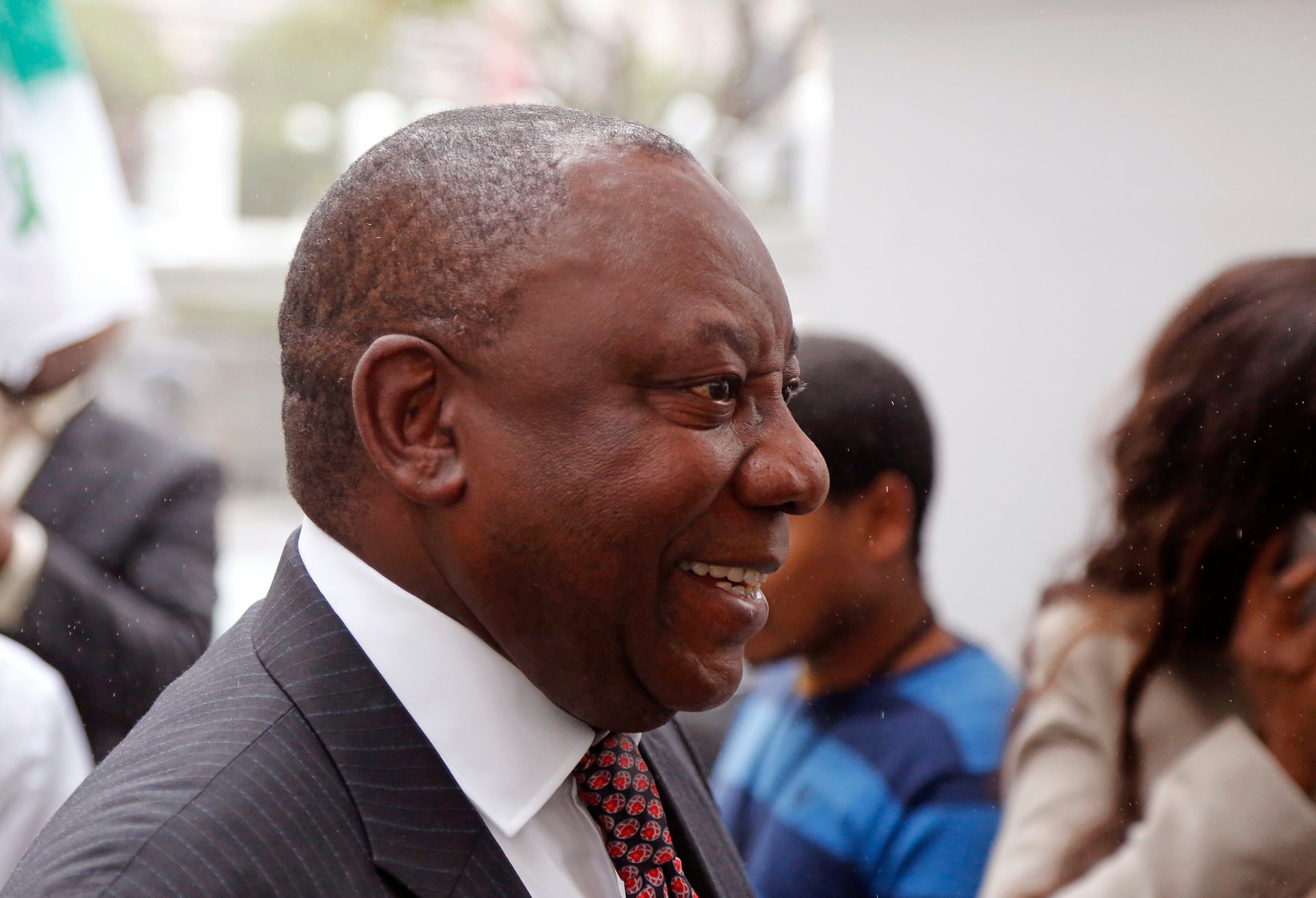South Africa’s ‘next president’ is entangled in another corporate tax dodging allegation—this time its with MTN
South Africa’s deputy president Cyril Ramaphosa—long seen as the most likely next successor to president Jacob Zuma—has seen his name caught up in another corporate tax dodging allegation, this time with Africa’s largest mobile phone company MTN.


South Africa’s deputy president Cyril Ramaphosa—long seen as the most likely next successor to president Jacob Zuma—has seen his name caught up in another corporate tax dodging allegation, this time with Africa’s largest mobile phone company MTN.
Last week Friday, amaBhungane, an investigative journalism organization, and Finance Uncovered, a global network of journalists, published a story alleging that Africa’s largest mobile network, MTN, was involved in shifting millions of dollars from its subsidiary companies in Nigeria, Uganda, Côte d’Ivoire and Ghana to companies in Dubai and Mauritius in order to avoid its tax obligations. This all happened under Ramaphosa’s watch, as he was chairman of MTN’s board of directors, between 2001 and 2013.
In September last year, South Africa’s Mail and Guardian reported that Lonmin—a mining company which Ramaphosa was a board member of between 2010 and 2013—was involved in a scheme to move profits generated from its platinum mining activities in South Africa to Bermuda.
While Ramaphosa, one of South Africa’s richest men, has taken a strong public stance against tax avoidance as deputy president it doesn’t seem to be in tune with his former life as a captain of industry. It is also causing a revision to the expectation that he is next in line when Zuma’s term ends in 2019.
According to the report, MTN subsidiary companies in Nigeria, Uganda, Cote d’Ivoire and Ghana paid “management fees”—which according to MTN cover for elements like back office support, technology transfer (to subsidiary companies) and use of the MTN brand.
While it is common for telecom companies to charge their subsidiaries management fees—as MTN itself argues in a response to a set of questions asked by the investigative team—the bone of contention is whether the large sums of money flowed to “real offices staffed with people doing actual work to earn the money” as the investigative report states.
MTN’s ‘management fees’
The investigative team reports that despite MTN having its headquarters located in South Africa, 55% of the “management and technical fee payments” flow to “MTN International” (MTNI)—a company which has no staff and is located in Mauritius. The remaining 45% was paid to MTN Dubai—a subsidiary which the company says it renders international financial services and shared services to MTN Group.
Territories like Dubai and Mauritius are better known as “tax havens”—many multinational companies stash their profits here using complicated payment systems to subsidiaries. The lure of a low tax rate, or a sometimes a zero-rate tax regime, is hard to resist: it means multinationals can cut the cost of doing business without paying tax in the country they’re required to do so.
Chris Maroleng, MTN spokesman said the company has not been involved in any tax avoidance scheme and that it had responded fully to the investigative team’s claims.
“We have been able to prove that we’re tax compliant in all our operational jurisdictions. We have not infringed any laws and we have nothing to hide,” said Maroleng. He added that MTN had been in contact with the amaBhungane and Finance Uncovered team for a “protracted period” and that the company had satisfied itself with all of its responses.
The deputy president’s office said it is referring all queries on the matter to MTN.
Meanwhile, the Right 2 Know campaign, a South African organization that advocates for freedom of expression and anti-corruption, has played on a MTN ad-slogan from 2009 to signal their discontent. MTN frequently used the South African slang word “ayoba” (loosely translated as “cool”) in their ads. Now R2K—is calling for the investigations against—has spun the slogan back to the company and Ramaphosa. Their version: “Tax dodging is not ayoba.”